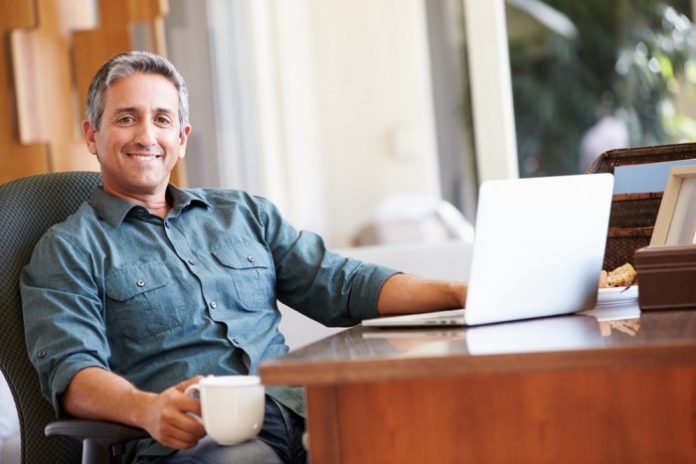There’s an important concept that entrepreneurs ignore at their own peril. It has several different titles, but the most common and understandable in English would be ‘Balanced Equanimity.’
Before explaining this necessary concept in detail, it should be understood that there are a host of other concepts and strategies that the aspiring entrepreneur needs to be successful at as well. There is never any one-thought-cures-all business philosophy that will fit every scenario or conquer every challenge. A blend of styles and concepts is usually what helps a startup weather the initial ups and downs of a new business; but behind that blend there needs to be an iron-hard resolution that balanced equanimity will be the linchpin, the keystone, the bedrock.
Think of balanced equanimity as a broad naturally flowing river. It has a starting point and it has an ending point. But those points are not as important as what is in between — that ever flowing band of water that carries all desires, goals, dreams, work, past and future happiness, along at a steady rate, never stopping and never being diverted. The goal of every startup is to achieve this balanced equanimity so that the entrepreneur does not become burnt out and quit in despair, or obsessed with his or her business plan to the exclusion of all else.
An entrepreneur is no different from the rest of the human race; their day is divided into roughly three areas — work, play, and sleep. There’s very little anyone can do about sleep — it’s required and can’t be put off for too long without dire mental and physical consequences. But the work and the play, now that’s a different story. Here’s the first big trap that many new entrepreneurs fall into — the mindset that if they spend all their waking hours working on their startup it is bound to succeed, or at least they will never be tortured by the feeling that they didn’t do their best or give it their all. The French have a name for this: Idee Fixe. It means an obsessive addiction to one particular theme or activity, to the exclusion of all else, such as family, hobbies, sports, religion, eating, etc. Those afflicted with an idee fixe are inevitably headed for a mental collapse, and rarely, if ever, achieve the financial success they dream of.
To put it another way, don’t let the tail wag the dog. A good entrepreneur is a good planner and, initially, a micromanager as well. The trick is to plan and micromanage what is going to be the most important aspects of life — and, believe it or not — that is not the startup itself.
Take CBD for example. CBD is not hard to get. You can order it on Amazon in one of many forms: oil, tincture, pill, powder, cream, lotion, even as a nutritional supplement (which is what my company Verum specializes in). Baristas will put some in your coffee in the morning, and fine restaurants will serve you their house dressing, which just happens to contain a soupcon of CBD. In fact, it’s hard to avoid CBD, wherever you go.
Why is that? Mostly because CBD has become the new wonder drug — as in, “I wonder if it does any good?” Anecdotal evidence is piling up that it is doing many people much good. And the research is continuing into CBD’s effectiveness against many different kinds of disease, as well as its viability for pain management.
And like many new and unfamiliar pharmaceutical products, there have been many conflicting claims about CBD. So many, in fact, that consumers are not only becoming confused but a bit suspicious as well. With so many past ‘miracle drugs’ having failed to really change the face of medicine and health, it’s only natural that the observant public is taking CBD with a grain of salt.
But — and this is a big ‘but’ — the evidence against CBD, as in it’s hurting patients under treatment with it, is non-existent. The medical consensus in the United States right now is that doctors are cautiously prescribing it for pain management, for muscle strain, migraine reduction, and a few other symptoms. The key word here is ‘symptoms.’ American doctors, in the main, are not yet ready to claim that CBD can cure any serious disease — but as a palliative, as a valuable and non-addictive substitute for opioids, it’s gaining acceptance by the medical profession throughout the country.
The FDA is moving slowly ahead with allowing manufacturers to refer to it as a pain medication and stress reliever. No doubt future FDA rulings will expand on that, as the research continues.
Always remember that a startup is just a means to an end. It is a way to make a difference and a way to make a living — which is why I chose to promote CBD — but it is not the end all and be all; that belongs to things like family and the multitude of recreations and activities that make up the so-called abundant life. THOSE are the things that should always be planned out first, and then the startup will never become the master, or the idee fixe. It will be simply a launching pad to a better lifestyle and deeper happiness.
Find a Home-Based Business to Start-Up >>> Hundreds of Business Listings.














































